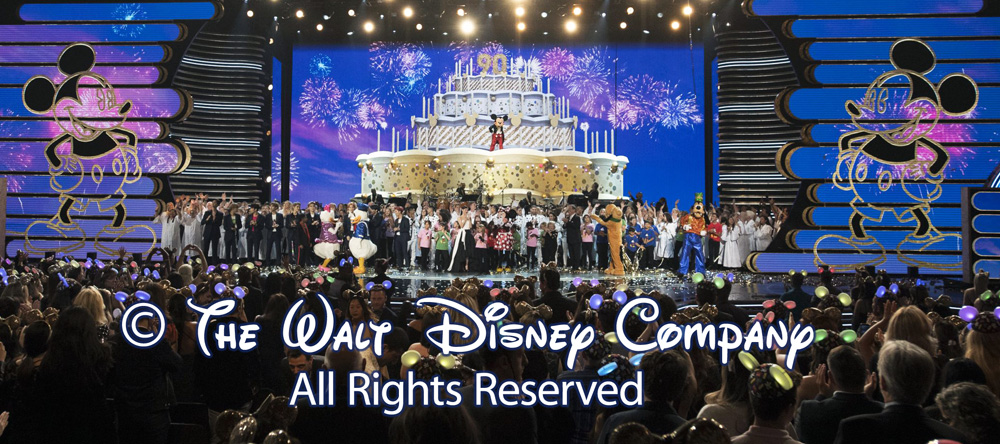The Walt Disney Company is celebrating the 90th birthday of the world’s most famous rodent, Mickey Mouse(TM), with a TV special and an exhibit at a Manhattan gallery. Ever since he was first dreamed up by Uncle Walt nearly a century ago, his firm has been able to churn out Mickey Mouse cartoons and license products without any competition or fear of parody because they hold and aggressively defend the copyright.
Originally, such protection in the US was for only 14 years, but by 1909 it had been doubled to 28 years with another 28 year extension possible. But now Walt Disney‘s heirs don’t have to worry about their exclusive rights to the rat until 2033. The company has been largely responsible for getting it extended several times, and they’re quite likely to do it again.
The mouse’s gloved fist
How will that affect their many other holdings – everything from Star Wars to Marvel movies to Indiana Jones and even National Geographic? This creates, in effect, an eternal monopoly, which is as boring as it sounds. After all, when was the last time Mickey did something really unexpected, notable, or even funny? The clever little fellow of Steamboat Willy that charmed the world with his antics has long been replaced by a staid corporate shill.
No independent creative person who wants to play freely in those sandboxes is allowed entry, except for maybe fan fiction. Thus, these giant franchises have little option but to keep going back to the same well that worked until they run dry. Over time, such control won’t protect their precious fantasies as much as smother them.
It is even getting that way in the sole really notable exception permitted – the Star Wars universe. There, George Lucas wisely decided to allow fan productions as long as they were not created or used for profit, proper ownership is cited, and so on. Since 2002, they’ve even held authorized Official Star Wars Fan Film Awards to honor the best. So while the official Star Wars movies are already getting stale and slightly repetitious, Star Wars fandom is bigger, more diverse, and livelier than ever (which is not always good). But the freedom to play with the core ideas is one big reason why, even if it gives them an unearned feeling of ownership. But the truth is that fans don’t just want to be passive consumers, they yearn to actively participate.
This yearning does have a down-side, however. Star Wars fans have always been as unashamedly vocal as they have been passionate about that galaxy far, far away. After some elements of the recent releases displeased some, Star Wars fandom viciously imploded in vile fan fights as bad as anything seen online. The toxicity drove actors away and poisoned the atmosphere.
An alternative fate happened to Star Trek fandom. While those fans have been lovingly writing their own fiction since before Star Wars was a twinkle in Lucas’ eye, and more recently, even ambitiously filming whole new episodes, the Star Trek galaxy has long suffered between heavy-handed attempts at corporate control and being ignored by its corporate owners.
Many Trekkie productions have not been content to recycle clips with clever dialog, but to ambitiously make whole brand-new episodes as they waited for decades for Hollywood to give them more stories. CBS and Paramount, which own the copyrights, came down hard on them. The result is that the only content Star Trek fans can see are duly-authorized corporate productions. Even though the suits have attempted to reboot the franchise twice (both in the movies and on cable), fans have not engaged with anything like the fervor (but none of the meanness either) of Star Wars fans. They’re simply not allowed. It will be interesting to see if all the effort CBS is throwing into their upcoming cable series will change that.
Fortress Europa
But that’s just one of the many problems with the entire copyright system. Even worse attempts at suppressing freedom and creativity are going on in Europe. There, a pair of long-abandoned draconian measures were snuck back into the proposed Copyright in the Digital Single Market Directive which the European Parliament had been laboring over for decades.
Article 11 provides for a Link Tax. Links and snippets (anything over a single word) from news sites on other webpages would only be allowed if the owners of those pages had negotiated a paid license. So much for “fair use“!
Article 13 provides for actual, honest-to-Orwell Censorship Machines. Nothing copyrighted may be ever posted without permission. Massive, expensive filters would have to be installed on each ISP’s servers to scan every post. Automated bots would give anonymous parties unquestioned and unstoppable power to block anything.
Fortunately, sane Europeans rallied to the cause in the nick of time, and these extreme proposals are still being negotiated. But if they ever become law, they would likely sound the death-knell for the free internet we know and love – not just in Europe but all over the planet.
Yet the push to make copyright unbreakable has been going on for some time, though technical solutions are often cracked as soon as they are used. This has led to Digital Rights Management (DRM) on discs, the bypassing of which – even for legal purposes – illegal under the Digital Millennium Copyright Act (DMCA). DRM’s potential applications online have also recently been enshrined as a standard in the basic code of the web, HTML5.
It’s a small world after all
Despite what many think, copyright did not come about to protect authors but to control publishers. The explosion of printing from the mid-fifteenth century was an information revolution that changed everything. Book producers who had barely scraped by with scibes reproducing texts by hand, were suddenly enabled by Gutenberg’s new technology to issue many more books, far more quickly and cheaply than ever before. This made it possible for writers to actually make a decent living from their words for the first time in history.
If careful in their clients, early printers could publish anything they liked – even works condemned by Church and state. Nor was there anything to stop any other printer from taking a popular book, reprinting it, or adding new adventures – and without paying the author a penny.
One of the first international best-sellers, Don Quixote, was ripped off in just this way. Miguel de Cervantes Saavedra, Shakespeare’s contemporary, was utterly outraged when he discovered that pirate editions and translations were being made of his popular epic parody of knighthood. Even worse, somebody else had dared to write a sequel, by all accounts a bad one.
Cervantes’ only recourse was to speed up his writing of a second part to Don Quixote. While even more fantastic than the first half, the tale was marred by many angry disparaging diatribes against those who had stolen his work. And it ended as do so many popular creations similarly endangered by characters continuing on after the end even today (such as the X-Files “Lone Gunmen”, for instance). Cervantes might have been the first to deliberately kill off his hero at the conclusion to prevent unauthorized sequels.
In the last century, no less an author than J.R.R. Tolkien was also hijacked. American paperback publisher Ace Books issued an unauthorized edition of The Lord of the Rings and got away with it due to differences in American and English copyright laws. For years, the authorized US Ballantine edition carried an angry plea from Tolkien on the back against the piracy.
Copyright in an age of manipulated scarcity
Copyright was originally an agreement worked out between publishers limiting what they could print and where it could be sold. Author’s rights were added later, as government control grew, but it remains in its core, regulations for the producers, not the originators.
While modern technology has brought down production costs to the point that authors can themselves publish their own works, real mass media still requires a lot of money and organization – films in particular. But copyright is a means of enforcing artificial scarcity.
If that sounds unworkable with today’s duplication technology, consider this. Most people don’t know this as it’s not talked about much. But the internet is entirely based upon reading information from one computer and writing it to another. Unlike the telephone, there are no open circuits spanning the distance between machines. Instead, data is grouped and copied in small batches from one server to the next until it downloads – which in reality, is the last server writing a copy onto your machine. So that book you bought for Kindle, the song from iTunes, the streaming video from Netflix, all got to you by the means of a whole string of fleeting copies across the net.
None of those transient copies should be seen by anyone; nor should they endure longer than it takes for the next packet of incoming data to overwrite them. But they could be seen or interfered with by hackers, which is one basic reason for the billions on security being invested in the net in the first place.
“Knowledge is power“, but “information wants to be free” are two opposite principles that influence all that is done with data on the net. But the basic technology shows that the economic theories that the whole thing’s based on just don’t work in the Age of the Internet. Someday, the paradigm will unexpectedly collapse and after a lot of pain, confusion, and conflict, a whole new economy will emerge. But it’s doubtless going to get even weirder before then.

